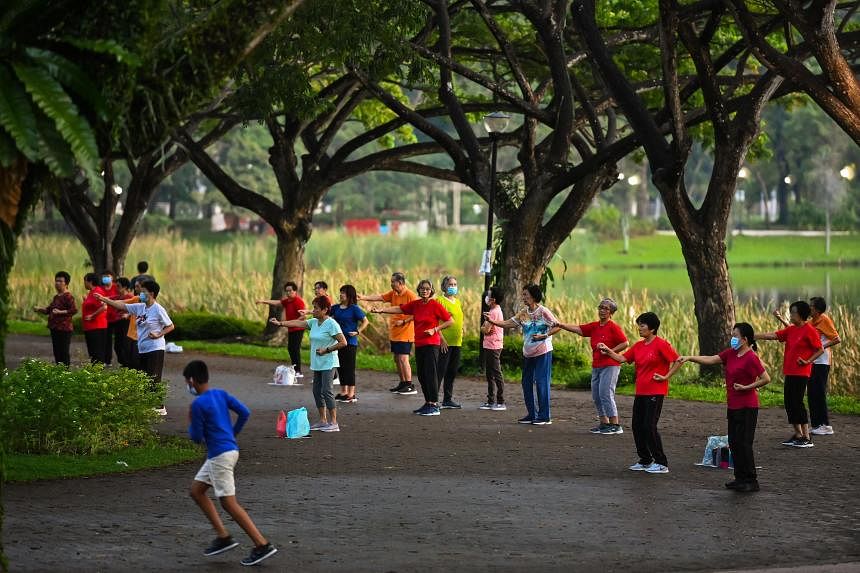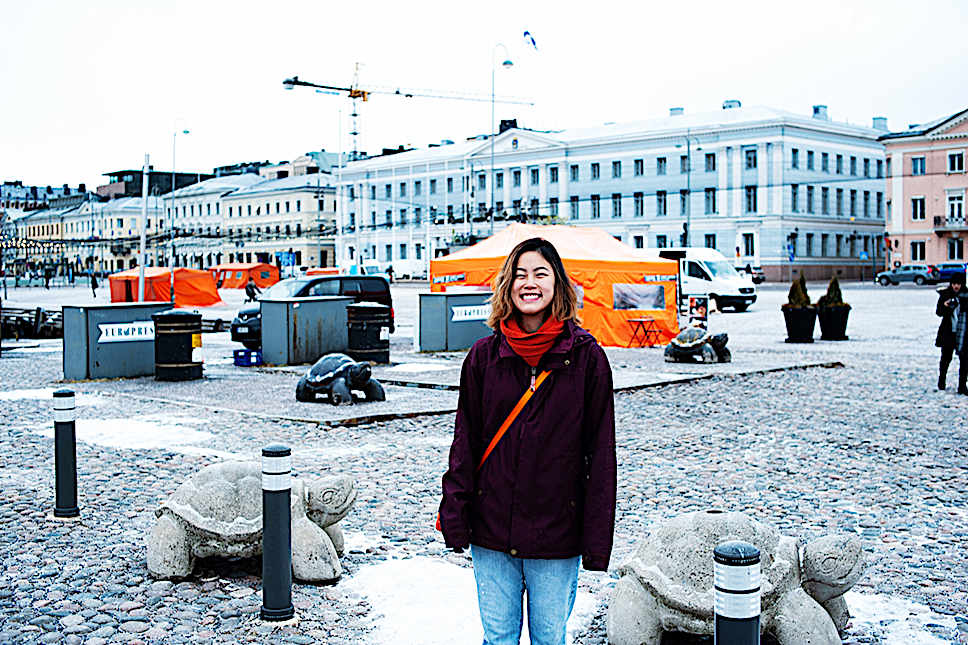The plan for an age-friendly Singapore
Singapore is ageing, and everyone in society will have to play their part in turning it into an age-friendly nation. The Government, corporates and community partners will have to work hand in hand, while the public must take a stake in the plan for successful ageing by participating in it.

SINGAPORE - Imagine you are in a forest. A two-tonne grey rhino is charging towards you. The danger is obvious. You have a choice of whether or not to do something about it. If you don’t, it will hit you like a ton of bricks and gore you.
Ageing is Singapore’s grey rhino.
But instead of staying still and getting slashed by its horns, Singapore has decided to act before the beast hurts the nation. In fact, it has been preparing for this almost-certain, high-impact phenomenon for years.
On Monday, Health Minister Ong Ye Kung, who helms the Ministerial Committee on Ageing, launched an update on what Singapore calls its action plan on successful ageing.
This plan kicked off in 2015, when the challenges posed by the charging grey rhino of ageing had already become obvious: Will older people stay healthy as they age? Will they be financially secure? How many will have to live alone or suffer from loneliness? Will housing estates and roads be friendly enough for them to cope? Will they be able to lead meaningful lives and be able to contribute their skills to the country?
The updated action plan tries to address these issues but also acknowledges that ministries and government agencies cannot face down the grey rhino by themselves, but will require corporations, charity organisations and communities to all play their part.
Singaporeans are living longer and having fewer babies. This has led to a rate of ageing that is so rapid that one in four people here will become seniors – aged 65 and above – in just eight years. By then, an estimated 83,000 seniors will live alone and about 100,000 seniors will require assistance with at least one activity of daily living, according to data from the Ministry of Health.
With those numbers, it’s clear that there has to be a ground-up approach in tackling the ageing issue, said Professor Paulin Straughan, dean of students at the Singapore Management University and director of the Centre for Research on Successful Ageing.
“It cannot be a top-down approach any more,” she said. “Moving forward, it would have to be about how to empower them (seniors) to take charge of their life... Otherwise, it’s not sustainable.”
A key plank of the refreshed approach is “care”. The Live Well, Age Well programme, which will offer activities such as group exercises and educational sessions on mental well-being, will help drive this.
Active ageing centres, which offer various activities, befriending services and care referral services, are also being expanded nationwide.
It is important for seniors to stay healthy as they age. That is why, under the Healthier SG programme, they will undergo regular screenings and be linked to family doctors who can customise their journey to stay healthy.
There is another reason. Dementia looms as a growing issue, with one in 10 people above 60 suffering some form of it. Mr Ong said there is evidence that a proportion of dementia cases are linked to conditions such as diabetes and obesity, and Healthier SG can help keep these in check.
Meanwhile, roads are being narrowed and traffic circles reinstated in some estates. This is to slow traffic and help seniors get around more easily. An active silver hub is being piloted to let older adults and youth interact through modified sports.
Efforts are also afoot to keep elderly people connected to society and loved ones. This can ward off loneliness, provide a sense of belonging and does wonders to a senior’s state of mental well-being, said Professor Kua Ee Heok from the National University of Singapore.
Engaging regularly in social activities can also help to delay the rapid progression of dementia in those living with it, said Prof Kua, who has vast experience in the management of dementia and mood disorders in old age.
Furthermore, seniors should be able to contribute their knowledge and expertise to lead fulfilling lives, engage in volunteerism, and hold down jobs to remain financially secure and mentally active.
The Government is doing its part. The retirement age will be raised from 63 to 65 in 2030, while the re-employment age will move from 68 to 70, to combat a shrinking workforce.

Corporations, too, must give seniors a chance to continue working by not being prejudiced against them and by opening up more options.
“One challenge we would have going forward is how to make the exit from work a fluid kind of platform. The chronological age is an artificial artefact,” said Prof Straughan.
“As long as the person wants to work, we have to give them the opportunity... We need to rethink what constitutes work. We need to learn how to engage people flexibly.”
Going down this road may slow down the charge of the grey rhino.
Join ST's Telegram channel and get the latest breaking news delivered to you.









No comments:
Post a Comment